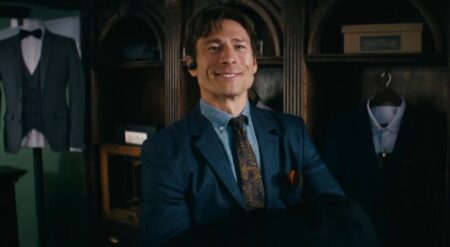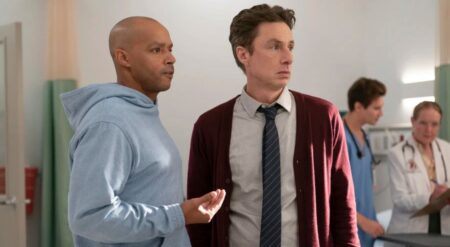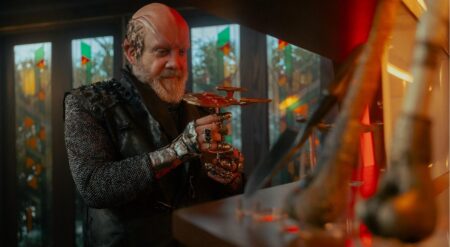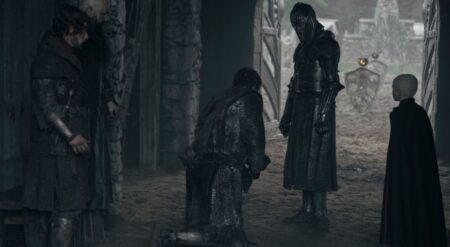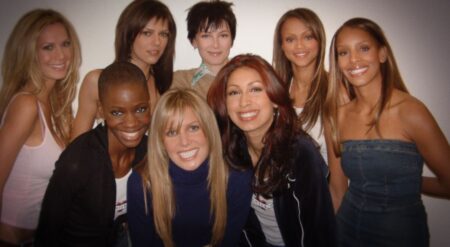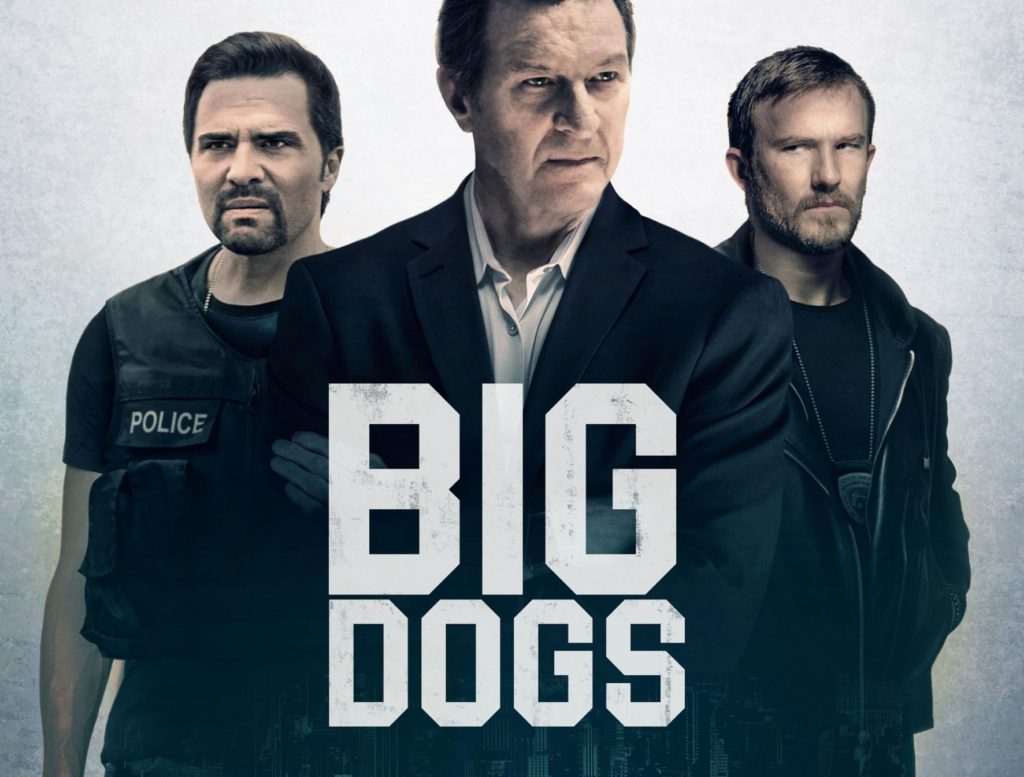
Cop dramas of any kind are ill-timed, and Big Dogs, created by Adam Dunn, is no exception. In a New York City besieged by financial collapse and a surging crime wave, an underworld economy of “speaks” — illegal, debaucherous after-hours clubs linked by a web of taxicabs — is thriving. The setting of the series is the United States in the near future, having suffered another economic collapse. Additionally, in the series, the other elements of building out a dangerous world are race riots and a crime wave. If this doesn’t show you how ill-timed this series is in-particular, I’m not sure what will.
In the eight-episode series, fashion photographer Renny (Micheál Richardson) has been moving party drugs through the taxi network for his boss, Reza (Tony Naumovski), the local front man for an international crime syndicate looking to take over the city for extra cash. When Renny is forced by Reza to step up his game as a dealer to a dangerous degree, he soon finds himself in the cross-hairs of both Reza and Detective Sixto Santiago (Manny Perez), whose experimental unit is using undercover taxis to crack down on the chaotic drug trade. After Santiago’s commander Captain McKeutchen (Brett Cullen) partners him with the mysterious and brutal new arrival Everett More (Michael Rabe), the two become entangled in a web of numerous government agencies and crime organizations circling a beleaguered New York, exposing a fight for control of both the city and the country at large.
By and large, the series is a standard cop drama that uses explicit sex scenes to bring an edge to the content. The story itself, as it revolves around Renny, is too loose to hold water, and overall, Richardson’s acting in the role leaves much to be desired. There is a lot in this series that is shock just to be shocking, from sexual violence to the consensual kind and women being used as window dressings, Big Dogs isn’t a series for me in the first place. Roll in the fact the most recent series of murders of unarmed Black and brown people by cops and the current economic decline, this is just not the right time for the series.
That said, in this unsettling series filled with a lot of mediocre acting, the shining storyline belongs to Sixto Santiago. As a character Sixto has range. He’s a cop, he’s a brother, he’s a son, and his trauma isn’t touted around like what is usually associated with Latino leading men. While he, unfortunately, doesn’t get the center framing on the show’s promotional poster, his role in the show is not to be understated. Sixto is used to showcase a police officer question the violence and law used around him. He confronts corruption and is continually shown to have a good heart, even when the society, be it police or civilian is pushing not to. This element is well done enough to land even in the current climate, but it’s not a unique story, outside of the fact that this one of the few times we get to see a Latino at the center of this narrative.
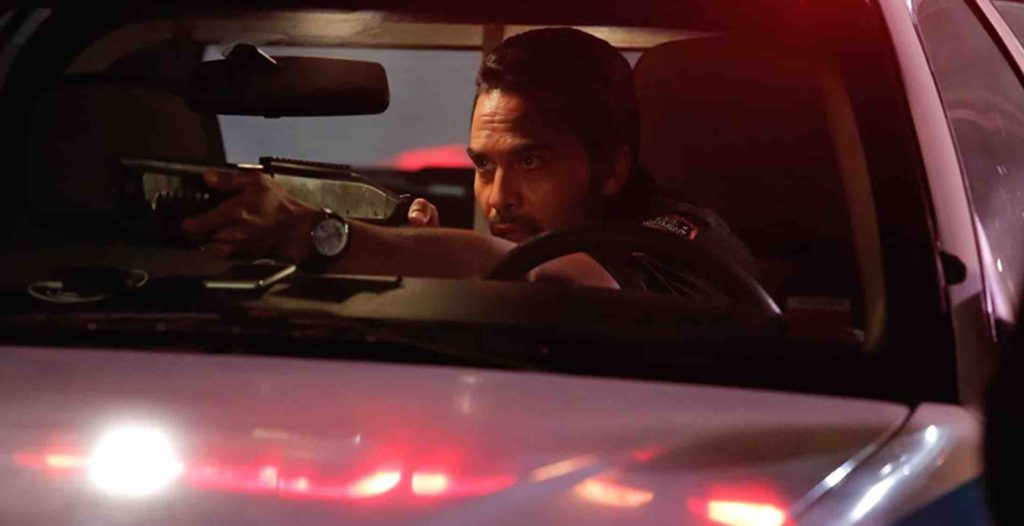
Truthfully, I was hesitant to even write this review because cop dramas are the last thing we need right now as a society, but Perez’s performance is phenomenal. In fact, the entire Latinx cast that plays the Santiago family not only has chemistry with each other but hold their own in their own environments. From the children brought in for flashbacks to Sixto and his father, it all works. Additionally, the switches from the past to the present makes Sixto one of the most dynamic characters in the entire show.
But the best moment in the series comes when Sixto comes to ask his sister for help at her hospital. This sequence of scenes works to develop the danger of the world of Big Dogs. It showcases the violence, the scarce resources, and how the rich and the white are privileged in the medical setting while those who are not are abused. Through his sister, you get to see what care can be and through her expertise, you get a window into the danger his new partner represents.
Another highlight is how the series uses Spanish. It never feels forced, even when actors are saying their line phonetically, it feels authentic. This is especially true when the characters switch between English and Spanish when experiencing emotional moments. It’s something that not all series get right, but this one, for the most part, does.
All in all, there is a lot that is unsettling in Big Dogs. The police corruption, violence, and the one lone cop trying to be on the good side of it all isn’t revolutionary. Given the current climate and very real issues of active police brutality, this series is just too much. While praise is in store for Perez’s performance, the way the series handles race isn’t. When Big Dogs attempts to tackle racism it is a ham-fisted, but more importantly, most confrontation of racial inequality is glossed over or side-stepped. This is concerning for a series that drops the phrase “race riots” continuously throughout the episodes. Additionally, the amount of sexual exploitation is gratuitous and bears nearly no weight on the story – especially individual sex scenes. This may be one to watch if you’re bored but in eight episodes, I can’t say you should move it up in your watch queue.
Big Dogs is available now, exclusively on Amazon Prime.
Big Dogs, Season 1
-
Rating - 4/104/10
TL;DR
All in all, there is a lot that is unsettling in Big Dogs. The police corruption, violence, and the one lone cop trying to be on the good side of it all isn’t revolutionary and it’s coming into a world where police brutality that is lived, makes seeing it on television too much too soon. While praise is in store for Perez’s performance, the way the series handles race is is a ham fist when its confronted and swept under the rug when it could be addressed, which in a series that drops the phrase “race riots” so much, is unacceptable.

